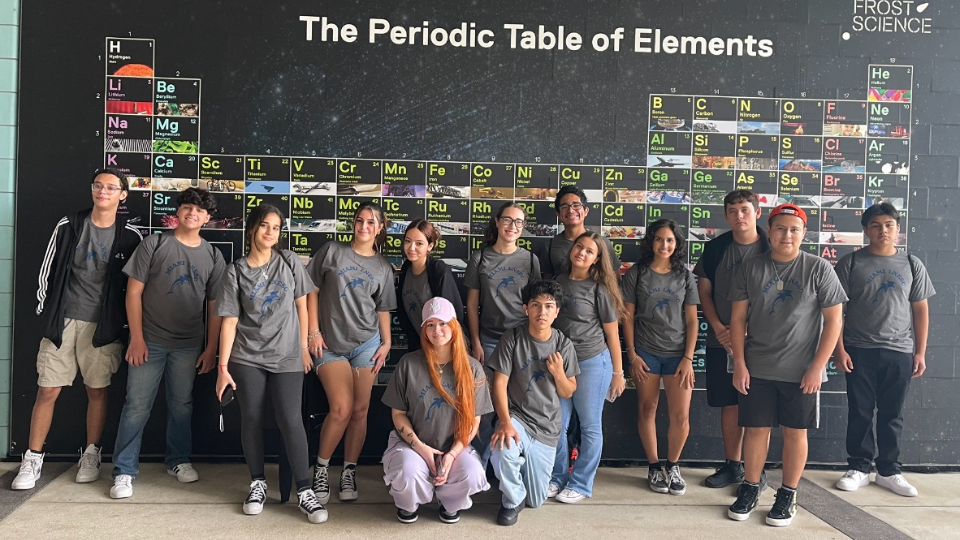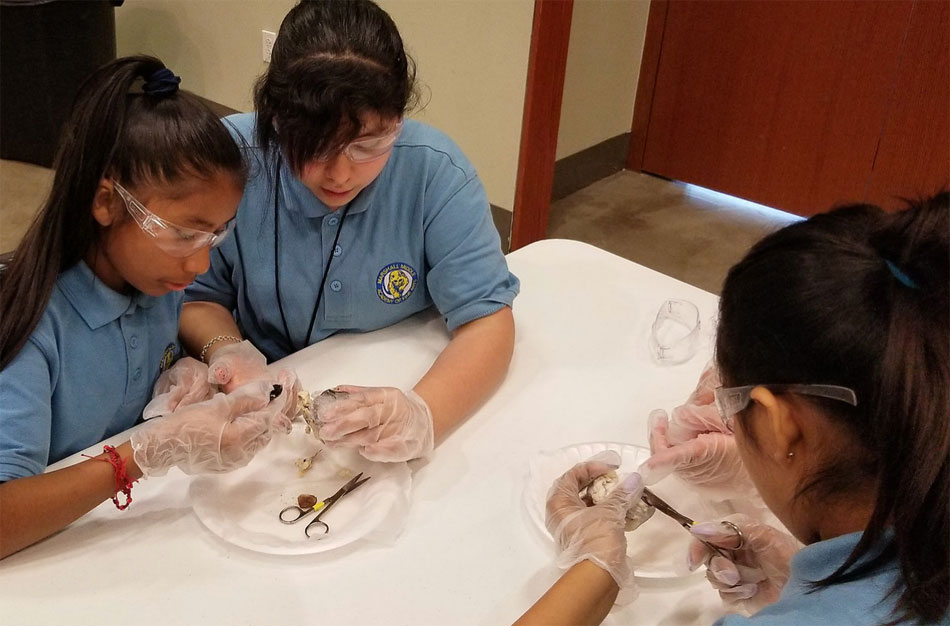Science Corps

Science Corps is an after-school program designed to encourage middle school students’ interest in science, technology, engineering, and mathematics (STEM). This is achieved by exposing them to real-world STEM applications and problems.
The program specifically targets female and minority students in order to prepare them to pursue a course of study that leads to undergraduate degrees in engineering or science. Latinos have a challenging time meeting STEM mentors and acquiring social capital that will ease them into a job. As such, a focused commitment to increase Latino representation in STEM careers will provide a greater number of role models and mentors for the Latino community through programs such as Science Corps.

Program Design
Science Corps curriculum focuses on activity-based modules and sessions led by STEM professionals. The evidence-based curriculum was developed in collaboration with the Education Development Center and includes weekly meetings on a variety of topics including engineering, nanotechnology, physics, environmental science, energy, and sustainability. LNESC uses grade monitoring, as well as pre- and post-program surveys to evaluate program effectiveness.
Science Corps educators report the level of student engagement and leadership monthly. This tracking is used to measure students' attitudes, interest, enthusiasm, and focus in the Science Corps classroom. Student engagement is found to be greater during hands-on activities, increasing interest in STEM fields and leading to a higher retention of material.
Program Impact
LNESC surveyed students at the beginning and end of the program to gauge the impact of the Science Corps program on students’ outlook and education in the STEM field. Please note that due the spread of COVID-19 the Shell Science Corps Program was interrupted and results are incomplete due a low post assessment submission rate.
- 83% of students surveyed indicated that they enjoy math and science after completing the program compared to 78% surveyed at the start of the program.
- 79% of students are willing to work hard to do well in math and science courses, compared to 73% at the beginning of the program.
- 82% of students know about different careers in science and engineering compared to 76% at the beginning of the program.

